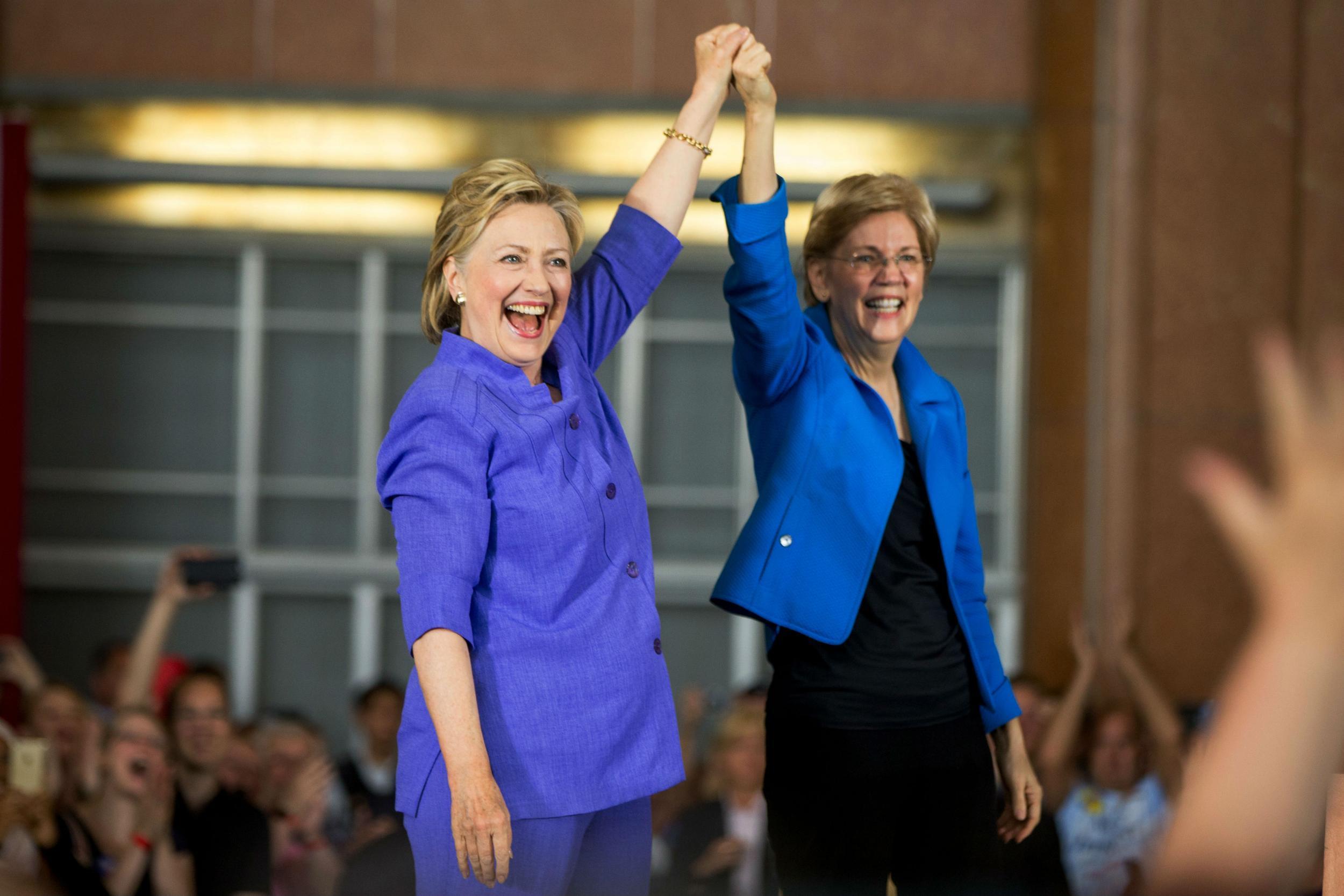Hillary Clinton and Elizabeth Warren: A two-woman presidential ticket is long overdue
The question as to whether 'Americans are ready' for two women on the ticket is irrelevant and insulting. What is important are Ms Warren's qualifications for the job


Your support helps us to tell the story
From reproductive rights to climate change to Big Tech, The Independent is on the ground when the story is developing. Whether it's investigating the financials of Elon Musk's pro-Trump PAC or producing our latest documentary, 'The A Word', which shines a light on the American women fighting for reproductive rights, we know how important it is to parse out the facts from the messaging.
At such a critical moment in US history, we need reporters on the ground. Your donation allows us to keep sending journalists to speak to both sides of the story.
The Independent is trusted by Americans across the entire political spectrum. And unlike many other quality news outlets, we choose not to lock Americans out of our reporting and analysis with paywalls. We believe quality journalism should be available to everyone, paid for by those who can afford it.
Your support makes all the difference.Hillary Clinton is famously cautious by nature.
One can therefore wonder whether she will select a woman as running mate on what would be an all-female Democratic ticket this November. One can also wonder, are Americans ready for such a step?
The potential running mate in question is, of course, Elizabeth Warren, high on Clinton’s vice-presidential list. In the past, the two have been something less than soulmates. But their personal chemistry has much improved of late, if their joint appearance at a Trump-bashing rally in Cincinnati, in the vital swing state of Ohio, is anything to go by. Politics, for once, seemed to be fun.
In reality, the question in the opening paragraph misses the point. Whether Americans are “ready” for such a step is irrelevant, even insulting.
What really matters, as Clinton herself has noted, is whether the person is qualified to take over the top job, not his or her gender.
The qualifications of Elizabeth Warren, a senator for less than four years and whose background is primarily that of an economics professor, may be debatable. So too is her potential value to the ticket. After all, liberals who adore her will probably vote for Hillary anyway. And there’s another technical snag if she is on the ticket.
Democrats are hoping to recapture control of the senate in November. But a vice-president Warren would have to vacate her seat – and in Massachusetts replacements in such circumstances are appointed by the state’s governor. Right now the governor is a Republican. Assuming he picks a fellow Republican, Democrats could be denied a senate majority.
By other yardsticks though, the double-dame ticket is if anything overdue. Clinton herself will be the first woman major party nominee in the 240-year history of the Republic, and only two – Geraldine Ferraro in 1984 and Sarah Palin in 2008 – have been on a major party ticket. If one now, then why not two now? And in a sense it would be merely catching up with what’s happened in other spheres of national life.
Women have climbed many rungs on America’s ladder of power over the last 30 years. Three currently sit on the Supreme Court; until 1981 there hadn’t been a single one. Three of the last five Secretaries of State, two of the last three National Security Advisors, have been women.
Christine Largarde runs the International Monetary Fund, based in Washington and in which the US has the largest voting share. She produced the best quote about the merits of XX-chromosome management, wondering if world financial history might have been different had a certain investment bank “been called Lehman Sisters, not Lehman Brothers?”
In corporate life, women too are making big strides.
Two of America’s most historic companies, General Motors and IBM, now have women CEOs. So do a couple of the countrys’s biggest defence contractors, Lockheed Martin and General Dynamics. So does Hewlett Packard, one of its top tech corporations.
Yet women are still under-represented in the highest reaches of America’s public and private sector. Despite everything only 4 per cent of Fortune 500 companies have female CEOs. California, the most populous state, has long had two women senators.
Even so, on Capitol Hill, only a fifth of the members of both senate and house are female.
In many European countries the corresponding figure is around 40 per cent. On that basis, whether or not Americans are ready for a Clinton-Warren ticket, they ought to be.
Join our commenting forum
Join thought-provoking conversations, follow other Independent readers and see their replies
Comments